Self-driven business
Access to capital from banks has become a key factor, helping Dak Nong enterprises develop and expand production and business activities.
However, to gain trust from credit institutions, businesses need to demonstrate their core values, strong financial capacity, good production and business plans, and sustainable development capabilities.

According to credit institutions, many businesses in Dak Nong have difficulty accessing loans. The reason is that businesses have not met the lending criteria and conditions from banks.
Common limitations include: lack of transparency in financial records, weak management capacity, and insufficient value of collateral. This creates a vicious cycle where businesses do not have capital to develop, but cannot access capital.
According to Mr. Pham Quoc Viet, Deputy Director of BIDV Dak Nong, the branch currently has 1,720 corporate customers. Of these, about 125 businesses have outstanding loans, with an amount of VND1,110 billion.
For a business to access capital, revenue, cash flow, and production and business situation are key factors for banks to consider.
For BIDV, this is a prerequisite for customers when making loans. The issue of collateral is only a necessary condition to increase the business's reputation at the bank.

BIDV is looking for businesses that are qualified for unsecured loans. The agreed interest rate for this lending channel is very low, from 4.5 - 5%/year.
Not to mention, the application, approval, and disbursement process is done entirely online, reducing the waiting time from several weeks to just a few days. However, the number of businesses in this category in the area is extremely rare.
To access loan capital, the leader of the Joint Stock Commercial Bank for Industry and Trade ( Vietinbank ) Dak Nong Branch shared that a strong brand is an intangible asset but has great value.
Banks often prioritize businesses with a reputation in the market and long-term development potential. Building a brand through product quality, service, and customer satisfaction is an effective way to increase business value.

“In addition to fixed assets, intangible assets such as copyrights, patents, and trademarks can also be accepted by banks as collateral. Businesses need to identify and accurately value these assets to optimize their borrowing capacity,” the leader shared.
Regarding this issue, Director of the State Bank of Vietnam Provincial Branch Pham Thanh Tinh said that accessing bank capital is not simply a matter of collateral, but also depends largely on the intrinsic value of the enterprise.
By being financially transparent, enhancing governance, and building credibility, businesses will improve their ability to borrow capital, creating a foundation for sustainable development in the future.

Simplify lending policies
In addition to the efforts of enterprises, credit institutions expand policies, creating favorable conditions for enterprises to access capital, the economy will benefit greatly. Enterprises can invest heavily in production, innovate technology and expand markets.

Mr. Nguyen Van Quy, Director of Huong Que Coffee Export Company Limited, Dak Mil District (Dak Nong) hopes that credit institutions should consider reducing the requirements for collateral. Instead, they should focus on assessing the business potential, cash flow and reputation of the enterprise.
Applying credit scoring models, using digital data to assess risk will help businesses access capital more easily.
“Banks create conditions for businesses to borrow capital in the form of credit. In addition to existing mortgaged assets, banks should consider and create conditions for businesses to borrow capital for contracts with partners of great value and high economic efficiency,” Mr. Quy shared.
Regarding the issue of accessing capital for businesses, Mr. Le Van Tung, Director of Tung Van Trade and Service Enterprise, Cu Jut District (Dak Nong) emphasized that it is still difficult to access capital. Should banks have specific policies for small and medium enterprises in Dak Nong?

Because, if following the general standards to get loans under the policy, many small and micro enterprises in Dak Nong do not meet the conditions. Not to mention, to get loans with preferential interest rates, enterprises encounter many complicated procedures, waste time and travel costs.
“Businesses lack capital. Banks have excess money. However, the problem of businesses having difficulty accessing capital has persisted for a long time. Credit institutions need to be more open about procedures, creating conditions for businesses to access capital to serve production and business,” Mr. Tung suggested.
Chairman of Dak Nong Business Association Nguyen Tri Ky stated that currently, the Government and the State Bank have given timely instructions but very few businesses have access to capital.

Because there are many criteria and conditions set forth by different credit institutions, credit institutions need to be more flexible in implementing loan conditions and procedures, creating favorable conditions for business development.
Loan procedures need to be shortened, minimizing unnecessary paperwork. Credit institutions should deploy financial consulting services, supporting businesses to complete loan applications quickly and effectively.

“Credit policies should be adjusted to suit each industry, sector and business size. For example, agricultural, high-tech or export enterprises should be given priority to borrow capital with lower interest rates and more flexible terms,” Mr. Ky suggested.
According to Mr. Ky, credit institutions need to implement loan packages with preferential interest rates specifically for key industries and start-up businesses. This helps businesses reduce financial pressure during the investment and expansion stages.
Create a clear operating mechanism
To unblock credit for businesses, in addition to the efforts of businesses themselves, credit institutions and local authorities need to pay more attention.
Local authorities need to build a transparent legal mechanism, simplify procedures related to licensing, credit activities and bad debt handling.
“A favorable business environment cannot lack developed infrastructure. Local authorities can support credit institutions in finding locations to open branches, upgrading traffic routes and telecommunications facilities to serve financial transactions,” said Pham Thanh Tinh, Director of the State Bank of Vietnam Dak Nong Branch.

According to Mr. Tinh, the Provincial People's Committee directed relevant units to act as intermediaries, helping credit institutions access small businesses, cooperatives, and production households in need of loans.
Building preferential credit programs or loan packages suitable to local economic characteristics will help capital reach the right people in need.
Regarding the issue of coordination with a number of related units in handling banking risks, it has long been just a formality. Should the units coordinate with each other regularly, sharing difficulties and problems related to credit activities in the area?

Regarding this issue, Deputy Director of BIDV Dak Nong Branch Pham Quoc Viet proposed that Dak Nong authorities need to digitize basic information about land widely and transparently so that credit institutions have a reference source for real estate prices and planning in the province.
“If data information is transparent, it will be easier for credit institutions to participate in financing large projects that are specific to the whole province,” said Mr. Viet.
Remove difficulties and obstacles
At the Conference on connecting banks and businesses held on October 9, 2024, Deputy Secretary of the Provincial Party Committee and Chairman of the Provincial People's Committee Ho Van Muoi emphasized that Dak Nong is facing many difficulties. Only when these obstacles are removed can businesses in particular and Dak Nong in general develop.
"We are frank, acknowledge the difficulties and obstacles, share and resolve them promptly to find a common voice," affirmed Deputy Secretary of the Provincial Party Committee and Chairman of the Dak Nong Provincial People's Committee Ho Van Muoi.

The Chairman of the Dak Nong Provincial People's Committee wondered why businesses in the province could not access capital locally but had to borrow from other credit institutions. Perhaps, in addition to personal relationships, credit institutions in Dak Nong were too cautious.
The provincial State Bank surveyed the number of businesses borrowing capital from outside the province to receive opinions. On this basis, the unit found solutions to overcome each difficulty.

As for the Provincial People's Committee, it will always create the best conditions related to credit activities. Dak Nong creates favorable conditions for credit institutions to operate transparently and effectively, and promptly deploy policies to the business community.
It can be said that the government, businesses and credit institutions need to work together to build a flexible, transparent and efficient financial ecosystem. This is the key for businesses to overcome challenges, thereby contributing to building a dynamic and prosperous economy.
According to the State Bank of Vietnam branch in Dak Nong province, 807 out of about 4,700 enterprises are operating and borrowing capital from credit institutions in the area, with outstanding loans of nearly VND 7,446 billion; accounting for 14.8% of the total outstanding loans of the entire economy in Dak Nong.
Source: https://baodaknong.vn/giai-phap-khoi-thong-tin-dung-cho-doanh-nghiep-dak-nong-234820.html













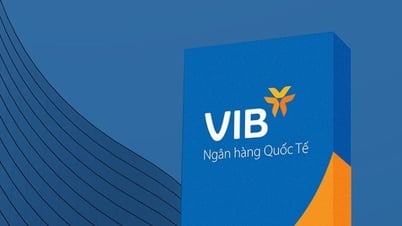

































![[Maritime News] Wan Hai Lines invests $150 million to buy 48,000 containers](https://vphoto.vietnam.vn/thumb/402x226/vietnam/resource/IMAGE/2025/6/20/c945a62aff624b4bb5c25e67e9bcc1cb)




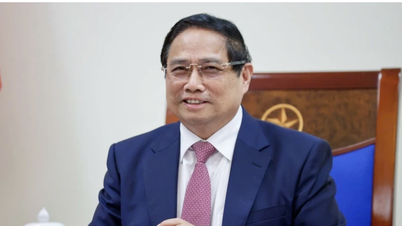









![[Infographic] Party Committee of the Ministry of Culture, Sports and Tourism: Marks of the 2020 - 2025 term](https://vphoto.vietnam.vn/thumb/402x226/vietnam/resource/IMAGE/2025/6/22/058c9f95a9a54fcab13153cddc34435e)



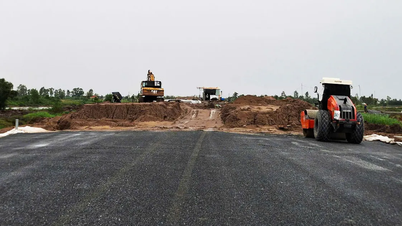



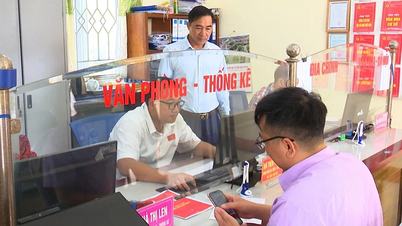


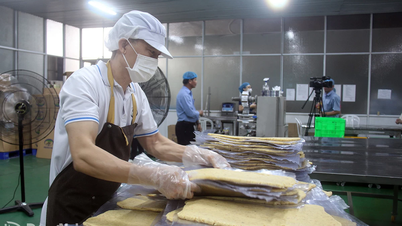














Comment (0)